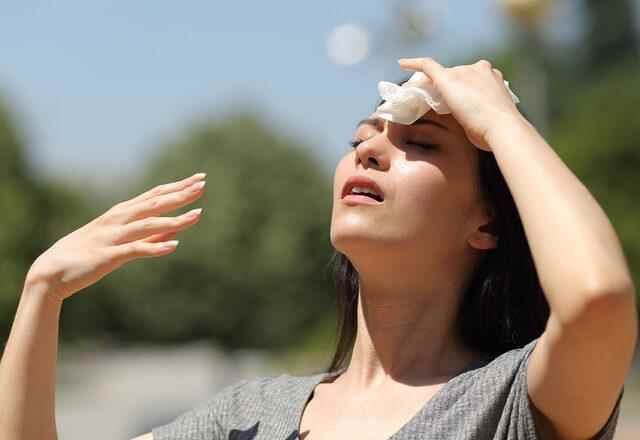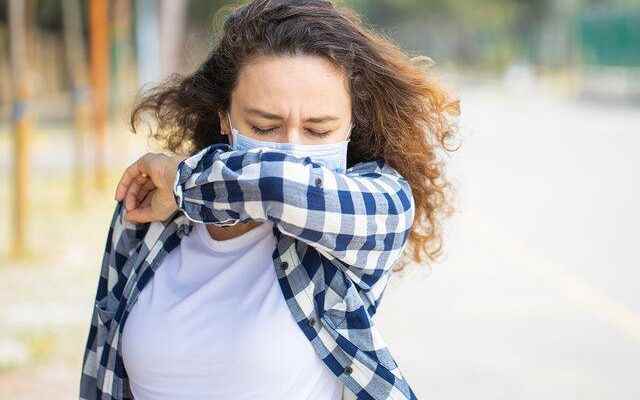As the weather warms, pollen also increases. Pollen causes allergic reactions. Doctor Mustafa Buyer and Eye Diseases Specialist Meltem Toklu warned citizens against pollen allergies, which increase with the warming of the weather. Allergic reactions, which turn this period into a nightmare, cause complaints such as nasal itching, eye discharge, redness and constant sneezing. Saying that the rate of admission to the hospital has increased recently due to allergic reactions, Doctor Mustafa Alici warned citizens who are exposed to excessive pollen with pollen and asthma complaints.
GOING TOWARDS ALLERGIC ASTHMA
Stating that there has been an increase in pollen allergy, Doctor Buyer said, “With the warming of the weather and the arrival of spring, we started to see an increase in allergy cases. In this process, we see that more pollen allergies increase. In general, we see it as a reaction against pollen in green areas, grass and tree areas with seasonal changes. Of course, some symptoms occur in our patients with this pollen allergy. In general, this allergy manifests itself with symptoms such as runny nose, scratching, sneezing, tearing, blood in the eyes, stinging and burning. Our advice to our patients is that if they have a known allergy, we want them to stay away from the areas where they have allergies and to see an allergy and chest specialist. Because we know that these patients have a genetic predisposition. Especially in children, there are symptoms that we call atopic gait. These are firstly allergic rashes in the form of eczema, then complaints such as runny nose, wheezing and coughing, which affect them more in the later processes and have difficulties in breathing. The patient is going through a process that progresses towards allergic asthma. “If exposure to allergens continues in early childhood, the process called atopic should continue and intervention should be done,” he said.
ATTENTION TO VERY SUNNY DAYS

Stating that patients with pollen allergy are also sensitive to sun rays, Doctor Ali said, “You should not go out on very sunny days. It is also necessary not to be in places where there is a lot of pollen and dust. For people who have to be in those environments, there are drugs that we call allergic drugs and we recommend our patients to use them. These drugs only prevent the appearance of the discomfort that occurs in that process. This allergy is something that will always happen in our body.”
HAND AND FACE CLEANING IS VERY IMPORTANT

Explaining that people with allergies should use a mask when interacting with the environment, Buyer said, “If our patient stays in an environment that will be exposed to this allergen, hand and face cleaning is very important in such cases. The hands should not touch the nose too much. We take these allergens through the respiratory tract. Hand, face and clothes cleaning is very important. When entering the house from outside, those clothes have to be removed, kept outside or shaken off. It is very important to use masks,” he said.
BACTERIA ON THE HANDS CAN CAUSE EYE INFECTION
Ophthalmology Specialist Meltem Toklu, who said that the ophthalmology outpatient clinic was busy due to pollen complaints, also said, “With the onset of summer months, the number of patients who applied to our polyclinic with complaints such as itching, redness and swelling of the lids increased. In these patients, infections and burrs caused by carrying the bacteria from their hands to the eyes along with itching are very common complaints. The way to get rid of these allergic symptoms without visiting a doctor is to wear sunglasses first. In very itchy periods, a cold towel should be applied to the eye or cold interventions should be made. When we are in meadow, grass and grassy areas, hands and face should be washed thoroughly afterwards. The connection with pollens and these allergenic substances must be reduced. Apart from that, we recommend women to collect their hair at night, especially.”
PERMANENT DAMAGES CAN DEVELOP

Emphasizing that the side effects of pollen cause the formation of different eye diseases, Toklu said, “Pollen and allergens that stick to the eyes during the day come into contact with the eyes and face and cause more allergies. Since the eyes are very itchy, it can cause thinning of the cornea, causing astigmatism and different corneal diseases. Therefore, scratching and rubbing a lot is risky for eye health. If the patient uses contact lenses, they should take a break and not use them during these intense allergic periods. If the patient still has more complaints after these measures, then we recommend applying to an eye specialist. Especially in children, this is not given much importance at an early age. Later, when they come to the hospital, they can leave permanent damage to the eye and can leave permanent damage that even leads to vision loss. Let’s be especially careful with our children and take care to bring them to the hospital early,” he said.
